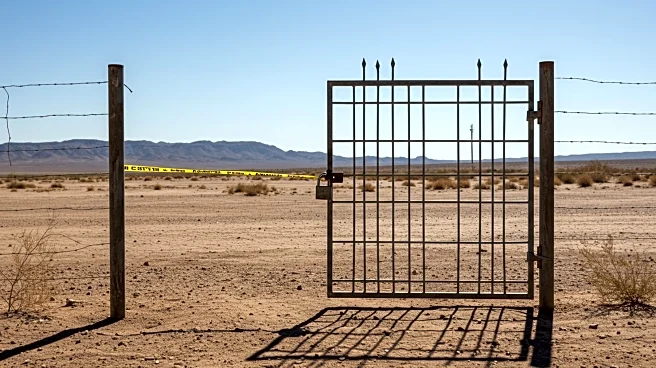What is the story about?
What's Happening?
The number of individuals in immigration detention has surpassed 60,000, marking a new record since the first Trump administration. This increase is attributed to intensified efforts by the Trump administration to escalate arrests and deportations. Internal records from Immigration and Customs Enforcement (ICE) reveal that over 1,100 people have been detained since Friday, averaging about 380 detentions per day. The capacity for detaining immigrants has expanded significantly since ICE's inception in 2003, with the average daily population of detained immigrants rising from approximately 7,000 to the current figures. The previous peak was 55,654 in August 2019 during President Trump's first term.
Why It's Important?
The surge in immigration detention numbers highlights the Trump administration's aggressive stance on immigration enforcement. This development has significant implications for U.S. immigration policy, affecting thousands of families and communities across the nation. The increase in detentions may lead to heightened tensions and legal challenges, as advocacy groups and legal entities may contest the administration's policies. The growing number of detainees also places a strain on detention facilities and resources, raising concerns about the conditions and treatment of those detained.
What's Next?
The continued rise in detention numbers may prompt further legal and political challenges. Advocacy groups are likely to intensify their efforts to address the humanitarian and legal implications of the administration's policies. Additionally, the administration may face increased scrutiny from lawmakers and civil society organizations regarding the impact of its immigration enforcement strategies. The situation may also influence upcoming legislative discussions on immigration reform and detention practices.
Beyond the Headlines
The record-high detention numbers may have deeper implications for the U.S. immigration system, including ethical and legal considerations regarding the treatment of detainees. The administration's policies could lead to long-term shifts in immigration enforcement and public perception of immigration issues. The situation may also affect international relations, as other countries respond to the U.S.'s handling of immigration and detention.















